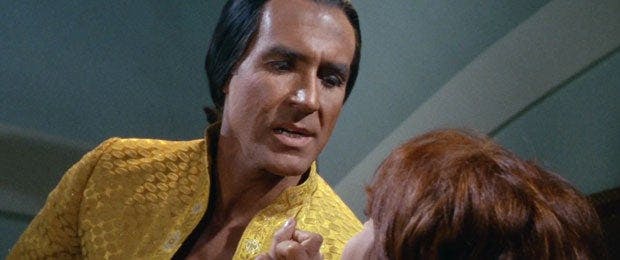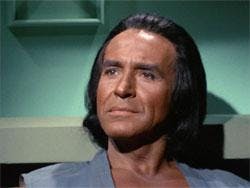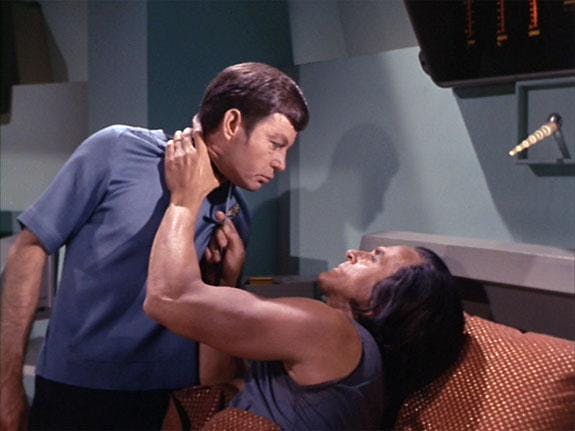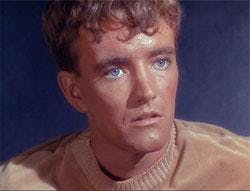Published Jul 31, 2013
The Evolution of "Space Seed," Part 2
The Evolution of "Space Seed," Part 2

The Importance of MemosFor the past five years, we have had the happy privilege of being able to study the archives of both writer/director Nicholas Meyer at the University of Iowa and those of Star Trek creator and visionary Gene Roddenberry at UCLA. Our research is inspired by what we consider an axiom of Mr. Meyer that “art thrives on limitations.” Limitations, be they of budget, time, censorship, technology, or perhaps self, can foster creativity in artists and filmmakers. There is likely no better example of this than Star Trek, which was produced during the 1960s on both shoestring budgets and hampered timeframes.Preproduction: The Script Part 2


On September 2, 1966, Gene Coon responds to Wilber’s outline with a 2-page memo. He rightly praises the outline for its creativity and for being one of the best the Star Trek offices had yet received, however there are some problems that Coon feels Wilber needs to fix as he begins to write the actual script. Some of the more interesting changes include:1) Removing the game of chess because firstly Spock doesn’t cheat (see our first article) and, secondly, Coon felt there were too many scripts featuring the chess game motif2) The Marla McGivers character was a communication officer originally, and should not be because Uhura has that role. Marla should have some other function.3) Wilber’s outline specifies the date that everything is occurring as 500 years in the future. Coon remarks that they do not want to specify when the adventures of Captain Kirk are occurring, although obviously, later, we do learn of the 23rd century setting4) Spock’s many peculiar behaviors in the outline, from cheating to having special mental powers, must be removedA more concerned Bob Justman writes a memo on September 6, 1966, to Coon, and cc’d to Roddenberry, Jefferies, and Story Consultant Steven Carabatsos (“Space Seed” would be his last episode as Story Consultant, interestingly). He laments the costs of producing the episode, and also offers some important reminders about the spirit of what Star Trek is about. He writes: “The treatment itself, as presently written, is incredible expensive and difficult. However, the story is well worth saving… There is more financial retribution inherent in this story treatment than in the original treatment on “THE CITY ON THE EDGE OF FOREVER.”"

Maria Jose and John Tenuto are both sociology professors at the College of Lake County in Grayslake, Illinois, specializing in popular culture and subculture studies. The Tenutos have conducted extensive research on the history of Star Trek, and have presented at venues such as Creation Conventions and the St. Louis Science Center. They have written for the official Star Trek Magazine and their extensive collection of Star Trek items has been featured in SFX Magazine. Their theory about the “20-Year Nostalgia Cycle” and research on Star Trek fans has been featured on WGN News, BBC Radio, and in the documentary The Force Among Us. They recently researched all known paperwork from the making of the classic episode "Space Seed" and are excited to be sharing some previously unreported information about Khan's first adventure with fellow fans. Contact the Tenutos at jtenuto@clcillinois.edu or mjtenuto@clcillinois.edu

